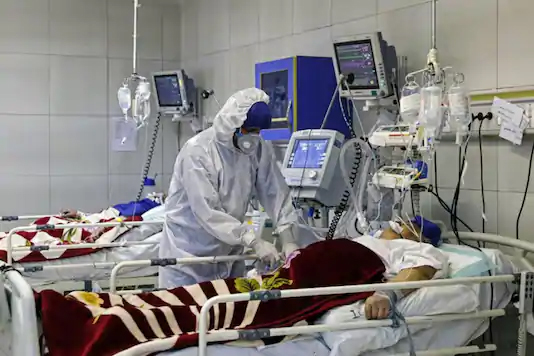NE NEWS SERVICE
AHMEDABAD, NOV 23
In view of a surge in COVID-19 cases in Ahmedabad, an association of private hospitals has come up with a set of guidelines to ensure that needy patients need not struggle for beds, an official said on Monday.
This comes a day after the Ahmedabad Municipal Corporation (AMC) raised questions over certain private hospitals admitting even those patients who do not require hospitalisation, thereby creating an artificial shortage of beds.
Ahmedabad reported 318 new coronavirus positive cases on November 22, taking the tally to 43,642. The death toll stood at 1,917, as per the city municipal corporation.
After a meeting held on Sunday, the Ahmedabad Hospitals and Nursing Homes Association (AHNA) came up with five criteria for admitting COVID-19 patients in the designated hospitals, the official said.
Releasing the set of criteria became necessary considering the acute shortage of beds due to the rise in the number of COVID-19 cases, he said.
Hospitals should admit patients who are above 60 years of age and are suffering from co-morbidity or associated medical conditions, or are on medication such as immuno-suppressive therapy and steroids, stated the guidelines issued by the AHNA.
Patients with a persistent fever of 101 F or more for more than three days or with oxygen saturation of less than 94 percent on room air, irrespective of age, should be admitted, AHNA said.
Patients with significant breathing discomfort and increased respiratory rate, and those with non-lung complications like drowsiness, chest pain, irrespective of age, would also require hospitalisation, it said.
“We have issued guidelines for admission of COVID-19 patients to make sure that asymptomatic patients are not admitted, and beds are made available to those patients who really require treatment,” said AHNA president Dr Bharat Gadhavi.
He said the AHNA guidelines are just broad in nature while the final call on hospitalisation will be taken by the treating doctor concerned.
“It is well known that in COVID-19 infection, nearly 85-90 percent patients will have mild to moderate disease and will recover on their own. The concern is only for the remaining 10 to 15 percent of patients who may require hospitalisation.
“It is important to note here that children and young ones are at very low risk of developing complications, and hence there are very high chances that they will improve on their own and will not require hospitalisation,” the guidelines said.
Standard protocols for the treatment of patients with injectable anti-virals at home or in a day-care centre setting has also been framed by the AHNA, and made available to the treating doctors.
Dr Gadhavi said the AHNA was trying to rope in more private hospitals for designated COVID-19 treatment, which will increase the availability of beds by 100-200.
As per the latest update, out of the total 2,705 beds made available for COVID-19 treatment across various private hospitals in the city, 2,544 beds, or 94 percent of the total beds, remain occupied.
A total of 383 ICU beds without ventilators out of 391 such beds are currently occupied, the AHNA said.
Similarly, 197 ICU beds with ventilators which are 95 percent of the total available ICU beds with ventilators, remain occupied.












